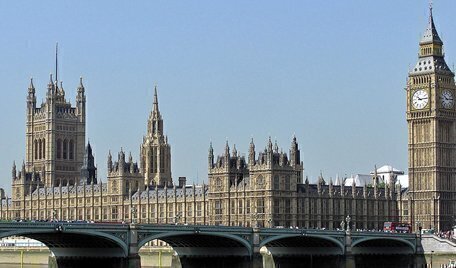In a stinging rebuke of Britain’s new Prime Minister, Boris Johnson, and a strong exertion of its own power, the United Kingdom’s Supreme Court on Tuesday unanimously nullified a government order to shut down Parliament for five weeks this month and next.
 “The effect [of the suspension] upon the fundamentals of our democracy was extreme,” the president of the Court, Lady Brenda M. Hale, said in announcing the decision. She said Parliament was shut down and totally unable to act in “quite exceptional circumstances” as the nation was fast approaching the date set to leave the European Union, October 31.
“The effect [of the suspension] upon the fundamentals of our democracy was extreme,” the president of the Court, Lady Brenda M. Hale, said in announcing the decision. She said Parliament was shut down and totally unable to act in “quite exceptional circumstances” as the nation was fast approaching the date set to leave the European Union, October 31.
The order “prevented Parliament from carrying out its constitutional role for five out of a possible eight weeks between the end of the summer recess and exit day,” the Court’s leader said. She stressed that the Court was not ruling in any way on the exit itself – known widely as “Brexit” – but only on the legality of the suspension.
Lewis Goodall, political correspondent for Sky News, tweeted from London: “The decision to prorogue…led to the most devastating blow to the PM’s authority. Disaster.” A BBC correspondent, Dominic Casciani, wrote on Twitter: “This is the worst possible outcome for the prime minister.”
The Court’s 25-page opinion is here. A four-page summary is here.
After ruling that the suspension was “null and void,” the 11 Justices went on to deny Prime Minister Johnson the option of deciding what to do in reaction to the decision. The Court said that it was up to Parliament itself, not the government, to decide whether to resume its interrupted session.
The Speaker of the House of Commons, John Bercow, promptly declared that the House “must convene without delay.” Later, he announced that the session would resume Wednesday morning.
“Brexit” has dominated Britain’s public life and especially its politics since the people, more than three years ago, narrowly voted in a referendum for the UK to leave the 28-nation European Community after being a part of if for a half-century. “Brexit” has driven two prime ministers – David Cameron and Theresa May – from office, and has now left Boris Johnson, a fervent cheerleader for the separation, with sharply diminished power to control what happens between now and exit day.
For example, he now faces an order from Parliament to ask the EU for an extension of exit day until January, if the legislature has not approved an exit deal by the middle of next month. Previously, he has vowed not to obey that order.
Jo Swinson, the leader of the smaller but recently emergent Liberal Democratic Party, urged Johnson to resign in the wake of the Court’s decision. Nicole Sturgeon, as First Minister and the government leader of Scotland, also called for Johnson’s resignation.
Johnson, in New York for a meeting of the United Nations, said that he would respect the Court’s decision, but insisted that “the important thing is we get on and deliver Brexit on October 31.”
Opposition to Johnson and to Brexit is far from unified in Parliament, where Johnson lost a majority after his Conservative Party expelled 21 MPs for voting against him in the now-suspended session.
In Tuesday’s Supreme Court decision, humiliation of the Prime Minister appeared to be complete. Besides ruling that the suspension order was “null and void” and that Johnson did not control the next step, the unanimous ruling also rejected the government’s claim that the Court had no power to second-guess prorogation, and the claim that the court challenge was an unconstitutional attempt to second-guess the functioning of Parliament in violation of the nation’s Bill of Rights, dating from 1688.
Although Johnson’s move to send Parliament home was actually ordered, at his request, by Queen Elizabeth, the Court was careful not even to appear to be questioning the Queen’s action. It said it was dealing only with Johnson’s advice to the Queen and with the actions of his Ministers in formally carrying out the suspension.
The historic ruling came down in the midst of a lively debate, in public discourse especially among constitutional scholars in the nation’s universities, over whether the Court would be exceeding its proper role if it judged the legality of the prorogation. Because Parliament is itself the sovereign governmental body, the traditionalist view was that the Court should have stayed out of this controversy as a junior partner in governing.
While the Court’s ruling almost certainly will not end the debate over the Court’s role in general, the Court itself appeared to have had little difficulty deciding that this controversy was well within its judicial authority. “The courts have exercised a supervisory jurisdiction over the lawfulness of acts of government for centuries,” the Court said. It added: “As long ago as 1611, the court held that ‘the King [who was then the government] hath no prerogative but that which the law of the land allows him.’”
That power of judicial review and the idea that there is a superior “law of the land” that limits the power of government were borrowed by America’s draftsmen of the U.S. Constitution in 1789. In America’s system, though, sovereignty actually lies with the people, who are to control the acts of the three equal branches of the national government.
Lyle Denniston has been writing about the Supreme Court since 1958. His work has appeared here since mid-2011.







